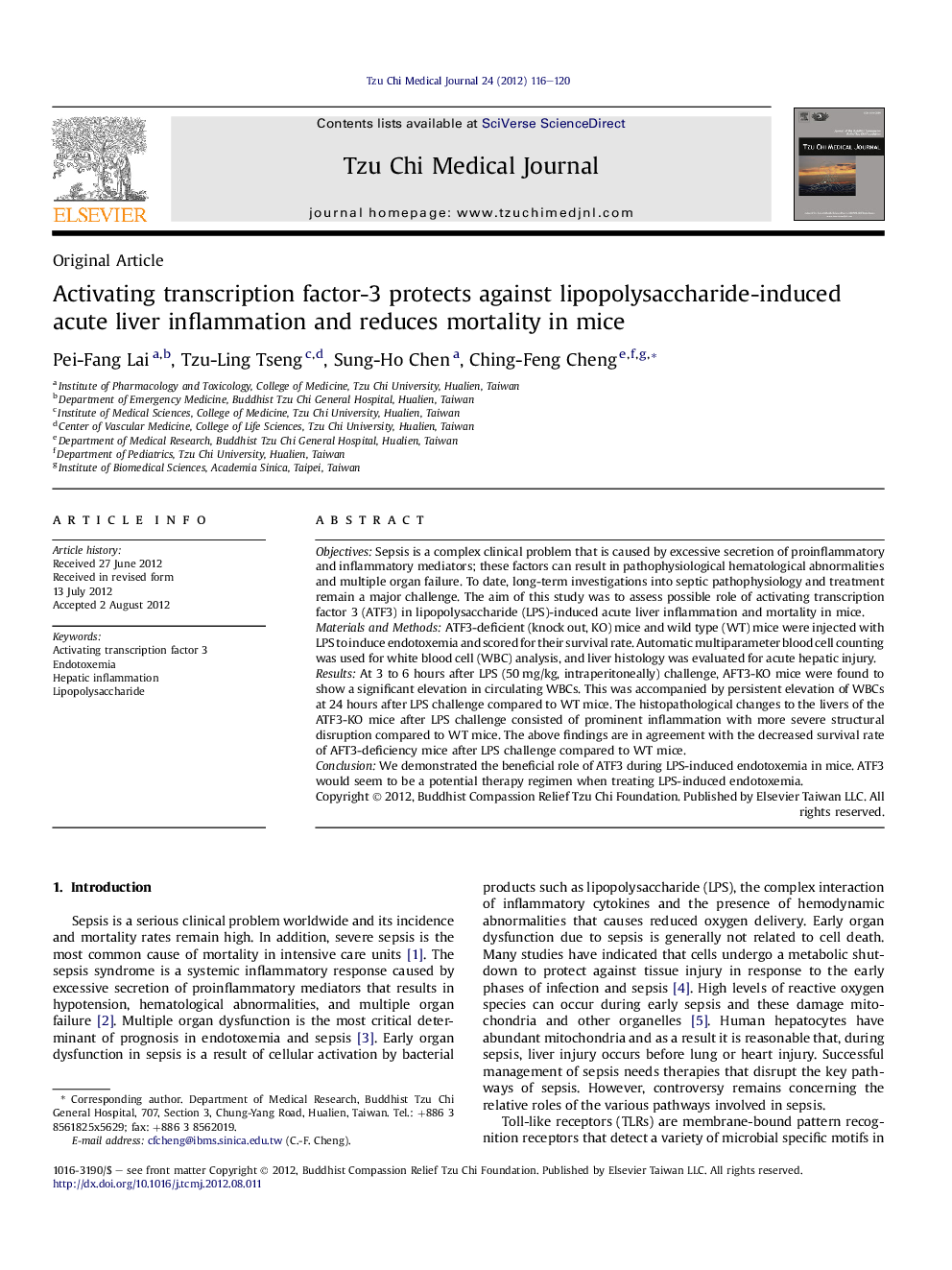| Article ID | Journal | Published Year | Pages | File Type |
|---|---|---|---|---|
| 3842064 | Tzu Chi Medical Journal | 2012 | 5 Pages |
ObjectivesSepsis is a complex clinical problem that is caused by excessive secretion of proinflammatory and inflammatory mediators; these factors can result in pathophysiological hematological abnormalities and multiple organ failure. To date, long-term investigations into septic pathophysiology and treatment remain a major challenge. The aim of this study was to assess possible role of activating transcription factor 3 (ATF3) in lipopolysaccharide (LPS)-induced acute liver inflammation and mortality in mice.Materials and MethodsATF3-deficient (knock out, KO) mice and wild type (WT) mice were injected with LPS to induce endotoxemia and scored for their survival rate. Automatic multiparameter blood cell counting was used for white blood cell (WBC) analysis, and liver histology was evaluated for acute hepatic injury.ResultsAt 3 to 6 hours after LPS (50 mg/kg, intraperitoneally) challenge, AFT3-KO mice were found to show a significant elevation in circulating WBCs. This was accompanied by persistent elevation of WBCs at 24 hours after LPS challenge compared to WT mice. The histopathological changes to the livers of the ATF3-KO mice after LPS challenge consisted of prominent inflammation with more severe structural disruption compared to WT mice. The above findings are in agreement with the decreased survival rate of AFT3-deficiency mice after LPS challenge compared to WT mice.ConclusionWe demonstrated the beneficial role of ATF3 during LPS-induced endotoxemia in mice. ATF3 would seem to be a potential therapy regimen when treating LPS-induced endotoxemia.
